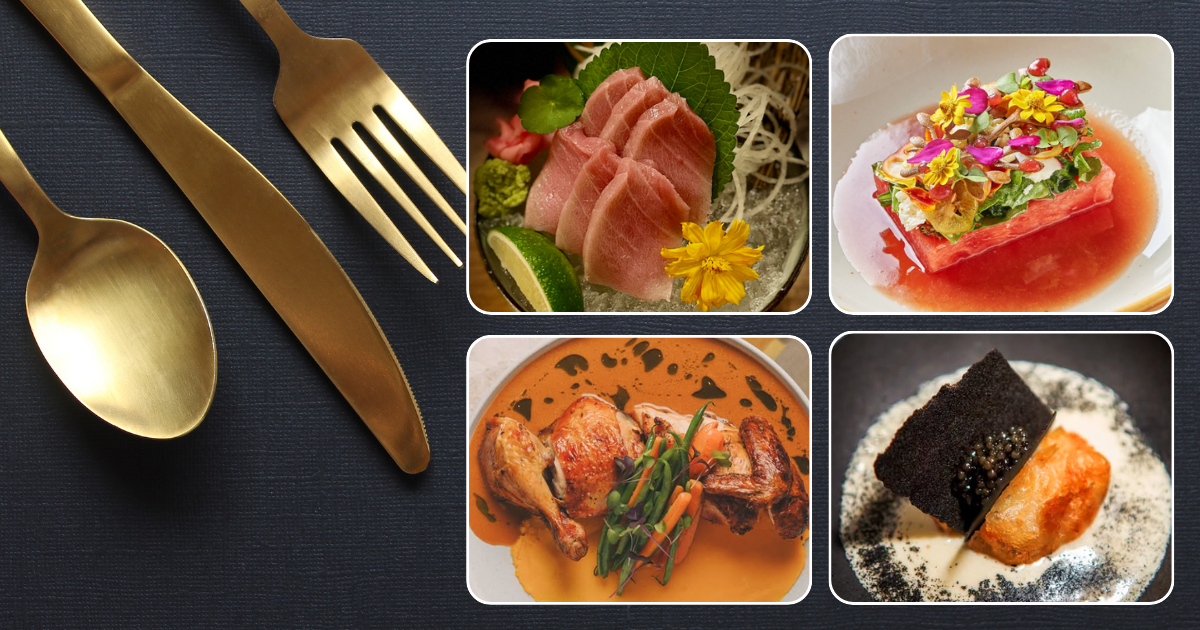With a society that is more open-minded and receptive about different types of creative expression, cuisines are now loosely merged, dishes must have a shock-factor (like serving ramen in toilet-shaped bowls), and restaurants can stand out for being extra – from exaggerated decor to feeding furry pets while you dine. Paired with a burgeoning Philippine economy, it’s no wonder entrepreneurs are able to blur boundaries, daringly crossing industries as they please.
One fine example of an industry unexpectedly dipping in casual dining is fashion retail, with emerging players like Sunnies Studios, Harlan & Holden, and brand giant Bench joining the retail-to-restaurant bandwagon. Though completely unrelated in terms of perishability of their goods and the corresponding supply chain model, the industries share a critical need to offer a lifestyle aesthetic that is appealing to their typically tech-savvy customers.
After all, the current generation want a uniformly stylized approach to what they wear, what they eat, who they hang out with, and how they present this all in social media. As evidenced by the large malls being built year after year, shopping in the Philippines is not a mere utilitarian act – it has to offer plenty of opportunities for interaction and indulgence, saving time for the busy ones without compromising the quality of social life.
Dubbed as the top one country to invest in according to the March 2018-released US News & World Report, the Philippines is a favorable landscape for both new and old businesses looking to expand their product profiles. As the retail market becomes highly saturated with new brick and mortar players vying to compete for market share, the need to diversify is imminent.
Surging rental rates in key areas in the metro also drive entrepreneurs to think of ways to increase ROI per square meter, whilst banking on the brand equity they have already created. Bazaars have also grown in popularity for being a one-stop-shop for shopping and dining, with plenty of delectable food options from famous and up-and-coming concessionaires on site. On the demand-side, disposable incomes rise as income tax rates shrink, and middle class families grow in number and affluence. Increased connectedness online through social media also makes instagrammable places become popular almost overnight, with customers patiently queuing just to get a blogger pose or food porn shot in the newest hangout in town. The way people give appreciation to these creatively-thought out establishments is magical, and the love is certainly no less for these 3 fashion-turned-food game changers:


After only 3 years of selling stylish sunglasses and growing like wildfire as a multi-awarded retail brand, Sunnies Studios introduced Sunnies Café in partnership with Foodee Global Concepts (the team behind Todd English Food Hall, Mesa, and TimHoWan), serving hearty comfort food with a modern twist and palatable balance of greens and flavorful meats. What piqued the interest of diners the most though is the Palm Springs and L.A. inspired theme of the café which gives off a casual but effortlessly cool vibe, just like the ‘it’ team behind the concept namely Georgina Wilson, Martine Cajucom, Eric Dee and wife Bea Soriano Dee. From playful milkshakes to modern takes on east-meets-west dishes like honey garlic crispy chicken and baked squid ink pasta, be ready to transport yourself to a place where you can enjoy brunch all day long, and look cool doing it.


Harlan + Holden’s fashion aesthetic is clean, minimalist, and neutral – and likewise, they approached the food industry with the same modern mindset. With Manila’s busy streets and often bleak urban landscape, Harlan + Holden Dine was able to create a refuge in the city with their glasshouse inspired restaurant in Rockwell, and a dainty pop up in Greenbelt, Makati. Serving healthy but delicious snacks and mains that are bound to fill your tummy and Instagram feed, the brand is certainly doing things right when their customers feel that it’s a great restaurant to be seen and a feel-good place to be in.


Bench started out as a humble menswear-only fashion store in 1987 but has now grown into a full fledged retail giant in the Philippines with international presence in the US, Middle East, and China. The lifestyle conglomerate is also the franchisee of global brands like Aldo, Cath Kidston, Jo Malone, Pablo Cheesetart, and Paul Boulangerie. Unsurprisingly, with so much influence and having dabbled on the intricacies of the food industry through their ventures, it was only a matter of time until they developed their own concept for a café that reflects their brand story. Bench Café is young and hip, bustling with creativity as it fuses Filipino favorites with flavors from foreign cuisines and serving it with creative names like Binagoongan Caesar, Tinapa Cone, Sisig Skillet, and Benchtos (their own take on Japanese Bentos). Also a partner of Foodee Global Concepts, we are likely to find ourselves with more surprise treats in the future as they come up with more tricks up their marketing sleeves.
Three brands and counting in the retail to restaurant bandwagon. Given the blooming Philippine commercial scene, who do you think will be next?








Leave a Reply